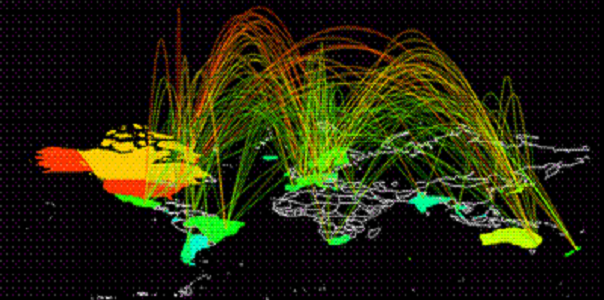The future of nation wars will be digital
Today’s biggest threat to national security do not come from aircraft carriers or infantry divisions, but a computer with a simple Internet connection. The massive introduction of the technology component in our daily lives has meant that cyber attacks and cyber espionage operations are the main politically motivated activities undertaken by governments. This is cyberwarfare.
Cyberwarfare involves the actions by a nation-state or international organization to attack and attempt to damage another nation’s computers or information networks through, for example, computer viruses or denial-of-service attacks. It involves well trained, well-funded professionals backed by nation states.
Cyberwarfare involves the following attack methods:
- Sabotage: Military and financial computer systems are at risk for the disruption of normal operations and equipment, such as communications, fuel, power and transportation infrastructures.
- Espionage and/or security breaches: These illegal exploitation methods are used to disable networks, software, computers or the Internet to steal or acquire classified information from rival institutions or individuals for military, political or financial gain.
On the flip side, systems procedures are continuously developed and tested to defend against cyberwarfare attacks. For example, organizations will internally attack its system to identify vulnerabilities for proper removal and defense.
Examples of cyberwarfare:
- In 2007, in Estonia, a botnetof over a million computers brought down government, business and media websites across the country. The attack was suspected to have originated in Russia, motivated by political tension between the two countries.
- In 2009, a cyber spy network called “GhostNet” accessed confidential information belonging to both governmental and private organizations in over 100 countries around the world. GhostNet was reported to originate in China, although that country denied responsibility.
- In 2010, Aurora was a shock: apparently Chinese hackers had been systematically attacking large number of US organisations, including Google which went public on its concerns. US Secretary of State Hillary Clinton issued a public rebuke to China, the first time one nation had publically blamed another for such an attack.
- In 2014, also known as ‘Uroburos’ or ‘Snake’,Turla was another long-running campaign . All of the targets for this surveillance tool appeared to be in the West, Turla appeared to a platform made up of multiple fairly sophisticated components and included enough unusual techniques to mark it out as the work of a well-resourced state.
- The most recent discovery and in some ways the biggest of them all, Equation Group underlines how the understanding of cybertools has expanded beyond individual bits and pieces to seeing them as entire platforms that are here to stay. Equation Group had several interesting abilities, including the apparent ability to infect the firmware of hard drives using a mechanisms that is not well understood.
Protection against cyberwarfare
The most effective protection against cyberwarfare attacks is securing information and networks. Security updates should be applied to all systems — including those that are not considered critical — because any vulnerable system can be co-opted and used to carry out attacks.
Measures to mitigate the potential damage of an attack include comprehensive disaster recovery planning that includes provisions for extended outages.
Contact Anglo African security team for your cyber security needs on 2331636 or contact@anglofrican.com

